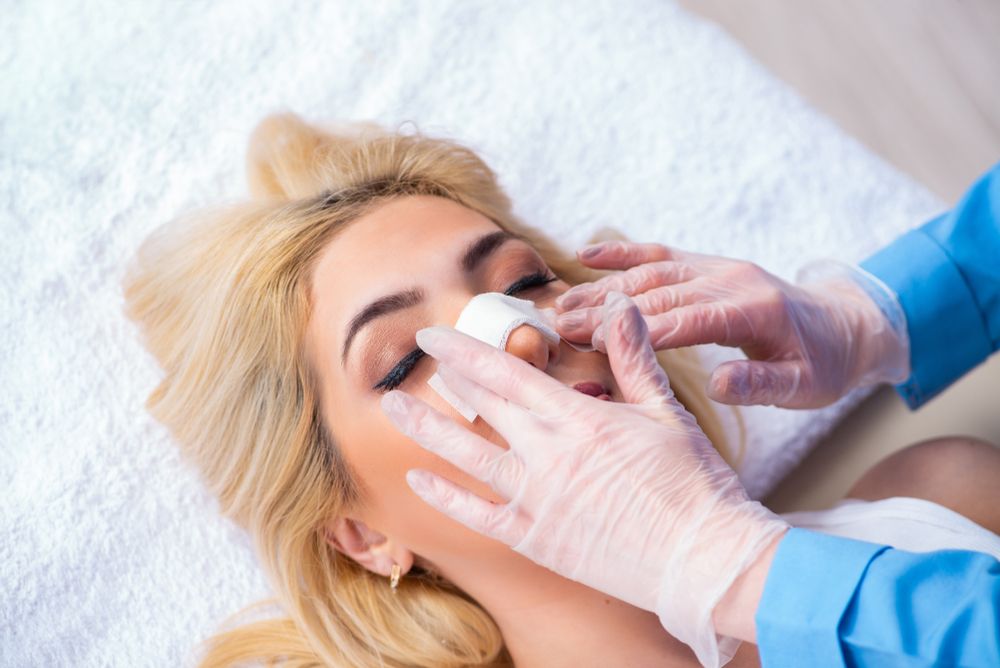Rhinoplasty Splints: What to Expect
 Rhinoplasty, or nose reshaping surgery, is a common procedure to correct imperfections in the size, shape, or function of the nose. Rhinoplasty enhances facial features, improves symmetry, and can also greatly improve a person’s breathing. There are many benefits to rhinoplasty surgery, but patients need to realize that this is a surgical procedure that will require a lengthy recovery.
Rhinoplasty, or nose reshaping surgery, is a common procedure to correct imperfections in the size, shape, or function of the nose. Rhinoplasty enhances facial features, improves symmetry, and can also greatly improve a person’s breathing. There are many benefits to rhinoplasty surgery, but patients need to realize that this is a surgical procedure that will require a lengthy recovery.
During rhinoplasty recovery, patients will be fitted with a nasal splint. Rhinoplasty splints are an important part of surgical recovery. Individuals in the Chicago, IL, area who are considering rhinoplasty surgery with Dr. Sahar Nadimi can read on to learn more about how rhinoplasty splints work and why they’e needed.
What Is a Rhinoplasty Splint?
A rhinoplasty splint is like a cast for the nose, only it is much smaller and less structured than casts used on other parts of the body. The splint itself is a plastic or silicone piece that sits along the bridge of the nose (and sometimes inside the nose) after rhinoplasty.
How Do Rhinoplasty Splints Stay in Place?
Splints placed outside of the nose are glued to the nose with a dissolvable adhesive, and then are further supported by surgical tape or bandages. Splints that are placed inside the nose sit inside either nostril. They are held in place by a few simple stitches.
Why Do I Need a Rhinoplasty Splint?
We use rhinoplasty splints at our Chicago practice because they can be very beneficial to a patient’s recovery process. Just like a traditional cast holds a broken bone in place while it heals, rhinoplasty splints support the structure of the nose and stabilize bones and cartilage so that they heal properly.
Rhinoplasty splints also offer the nose an added layer of protection while it heals. If a person were to bump their nose or have something lightly hit their face, the splint should prevent the tissues and bones of the nose from moving out of place or becoming injured.
How Long Do I Wear the Rhinoplasty Splint?
Rhinoplasty splints are only worn for the initial stage of a patient’s surgical recovery. Whether a patient has an external splint, internal splints, or both, they should be removed a week after surgery.
Removing Rhinoplasty Splints
To remove external splints, bandages are unwrapped and the splint is lifted off. Any remaining adhesive is gently washed away. To remove internal splints, stitches are taken out and the splints are carefully removed from the nostrils.
What Happens After My Splint Is Removed?
Rhinoplasty recovery is not complete when splints are removed. In many cases, external splints are replaced with medical tape so that the nose has a little support as it continues to heal. If no tape is needed, patients should continue to be careful about protecting their nose and avoiding activities that could cause facial injuries, such as competitive sports and heavy lifting.
Around three to four weeks post-surgery, patients are given the okay to resume exercise and other strenuous activities.
Contact Our Practice
If you are considering rhinoplasty, Dr. Sahar Nadimi can provide you with more information about the procedure and the recovery process. To schedule a consultation, send us a message online at your earliest convenience, or call The Chicago Hair Institute at (630) 932-9690.





